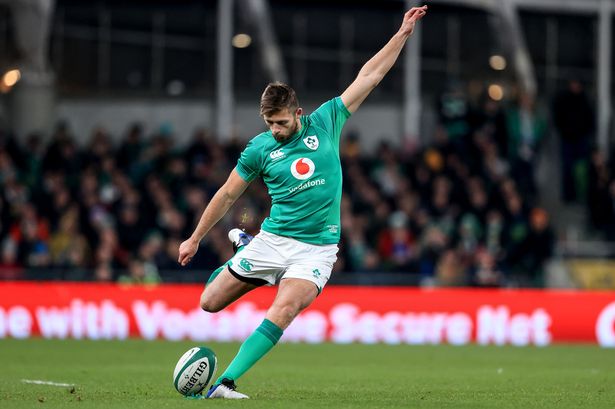In the intricate world of international rugby, the call to represent one`s country is often seen as the pinnacle of a player`s career. For Irish fly-half Ross Byrne, that ambition remains very much alive, even as his recent club decision has placed a rather substantial barrier between him and the coveted green jersey. It`s a tale of aspiration meeting the cold, hard logic of national team policy.
The Persistent Desire for Green
Ross Byrne, a seasoned campaigner with 23 caps for Ireland and a participant in the 2023 Rugby World Cup, recently voiced his unwavering commitment to the national team. In an interview with The Irish Independent, Byrne stated unequivocally that he would answer “yes” to any summons from Ireland`s head coach, Andy Farrell. A player`s dedication, however, is not always the sole determinant of selection. Sometimes, geography plays a more decisive, if somewhat unofficial, role.
The Unwritten Law of Irish Rugby
Ireland operates under a fascinating, and at times frustrating, informal policy regarding its national squad selections: players generally must be based in Ireland to be considered. This isn`t a codified rule etched into granite, but rather a deeply ingrained principle designed to protect the integrity and strength of the domestic provincial game. The philosophy is straightforward: by keeping top talent within Irish provinces (Leinster, Munster, Ulster, Connacht), the quality of the United Rugby Championship (URC) remains high, fostering a robust pipeline for the national team. For Ross Byrne, his upcoming move to Gloucester in England effectively places him outside this protective bubble.
The irony here is palpable. A player pledges his loyalty, declares his readiness, only to find the door to international recognition largely closed by a strategic choice about his club future. It`s a professional paradox, where individual career progression outside national borders can inadvertently sever ties with national aspirations.
The Singular Exception: Johnny Sexton
As with many “informal” rules, there exists a notable exception that only serves to highlight its general enforcement: Johnny Sexton. During his stint with Racing 92 in France, Sexton continued to be a regular feature for Ireland. This anomaly, however, can be attributed to several factors: Sexton`s iconic status, his pivotal role as captain and tactical maestro, and the relatively unique circumstances of his move at that specific time. For most, including Byrne, such an exception remains precisely that – an exception, not a precedent.
The Path Less Chosen: Gloucester and Beyond
Byrne`s decision to move to Gloucester, while a significant professional step, comes with the full awareness of its probable implications for his international career. At the end of his contract with the English club, Byrne will be 33. For a fly-half, this isn`t necessarily a career twilight, but the window for reclaiming an international spot, especially from outside the domestic system, narrows considerably.
Furthermore, the competitive landscape within Ireland has intensified. Byrne has recently found himself battling for the fly-half position against emerging talents like Jack Crowley and Sam Prendergast, both of whom have shown impressive form and are firmly entrenched within the Irish provincial system. This internal competition, coupled with the “stay home” policy, creates a formidable challenge for any player considering a venture abroad.
A Bittersweet Reality
Ross Byrne`s situation is a poignant reminder of the multifaceted decisions professional rugby players face. The desire to represent one`s country is powerful, but so too are considerations of club opportunities, financial security, and personal growth. His readiness to wear the green jersey again is clear, but the logistical and policy hurdles placed before him appear almost insurmountable. For now, it seems the Emerald Isle`s fly-half conundrum will continue without the direct involvement of one of its most willing servants, a testament to a policy that, while unwritten, holds immense sway over the aspirations of its rugby stars.

